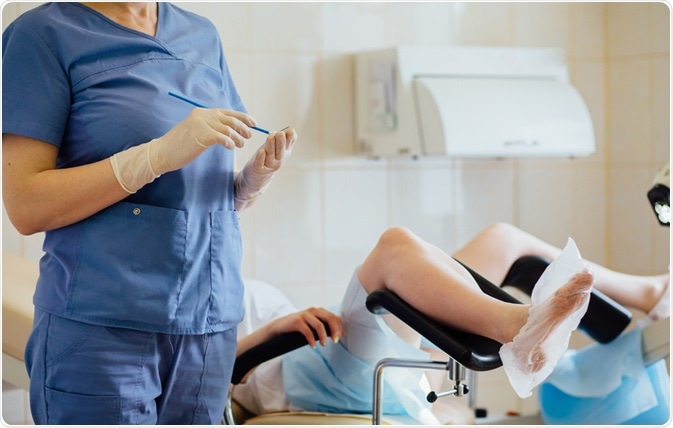A pap smear is a quick and simple method of cervical screening to detect changes in the cervix that may lead to cervical cancer in women.
Using the pap smear as a screening test to help detect any abnormal changes earlier can have significant positive benefits on the patient, as treatment can be undertaken in the early stages of the condition, which is more likely to be effective.

Image Credit: Iryna Inshyna / Shutterstock.com
Statistics
Cervical cancer is the fourth most common cancer for the worldwide population of women. By the end of 2018, an estimated 570,000 women were diagnosed with cervical cancer throughout the world, with 311,000 reported deaths. The vast majority of these cervical cancer deaths (90%) occur in less developed regions, which is most likely due to the lack of screening programs.
Since screening began in developed countries, the number of women diagnosed with cervical cancer has dropped by an average of 4.5% each year. This is most likely because women are able to detect subtle changes earlier, preventing the progression to cancer with preventative treatment.
Women who have had a hysterectomy
Even women who have had a hysterectomy may need to continue to have a pap smear. Some examples of women who should continue their pap smear examinations include those who:
- Did not have their cervix removed
- Did not previously have regular tests
- Have had abnormal test results in the past
- Have had gynecological cancer
If the cervix was removed and the woman has had regular pap smears with no abnormalities, then there is no need to continue to get pap smears.
Women with disabilities
It is just as important for women with disabilities to get a pap smear and adhere to a regular screening program; however, it is often more difficult for many women with disabilities to stick to a regular program. This is often because of transport difficulties, lack of assistance, or the difficulty in finding health care professionals who can work with their needs (e.g., sign language or vision difficulties).
It is also common for women with severe difficulties to be overlooked for pap smears because other medical problems take the primary focus.
Pap smears are very important for women with disabilities; therefore, a regular monitoring program should be conducted in order to ensure their protection from cervical cancer.
Women over 70
Pap smears are recommended for women up to the age of 70. If women have had normal tests for at least five years before they turn 70, then they are no longer required to have this examination after this age. This is because there is minimal risk for women to develop cervical cancer after having regular tests without abnormalities throughout their sexually active lifespan.
However, if women prefer to continue pap smear tests after this age, they may discuss this with their doctor, as it is possible to continue performing the tests if desired.
Human papillomavirus (HPV) testing
There are some studies that show that the HPV test results can show clear results in severe cervical cell abnormalities. As a result, taking both tests is also advisable to find cervical abnormalities.
Summary
Pap smears should be performed every two years on sexually active women over the age of 18, including women who have been sexually active in the past. Many countries have set up registers for women that send reminders that they are due for their next pap smear. If women adhere to this program and maintain regular checks, any abnormalities should be detected in their early stages, ultimately leading to the early detection of cervical cancer.
References
Further Reading
Last Updated: Apr 12, 2021